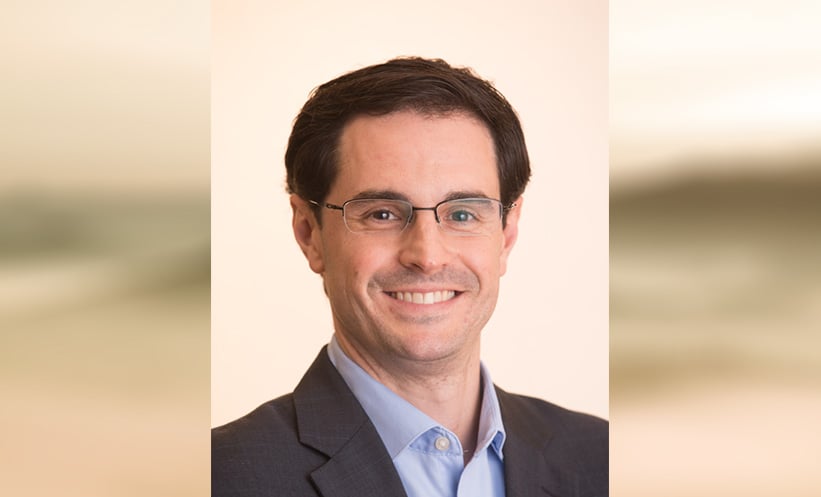Dion Warren, VP, Head of Oncology Business Unit, Europe and Canada, Takeda Pharmaceuticals
![]()
Written by Louise Rogers | @EMG_GOLD
![]()
Patient, Trust, Reputation, Business: the starting point of EMG’s conversation with Dion Warren and the pillars that underpin the talk with the Head of the Oncology Business Unit for Europe & Canada. He states that these pillars are not just a slogan but an embedded way of working across the organisation. “Oncology is a competitive space and there are many companies interested,” Warren explains. “What makes Takeda different is the culture and the underpinning philosophy we go by: Patient, trust, reputation, and business. Those four areas, in that order of priority, are how we go about our work.”
Having started his career at Millennium Pharmaceuticals and staying within the oncology division when Takeda acquired Millennium in 2008, Warren tells us how building the division up from the beginning and being heavily involved in globalising oncology at Takeda are some of his proudest achievements. “Going from a US biotech to being empowered and responsible for bringing forward transformative, lifesaving medicine to patients globally has been exceptional,” he says.
Since the hiring of former GSK executive Christophe Weber in 2014, Takeda has executed a number of significant deals, including the acquisition of ARIAD Pharmaceuticals in 2017, which moved Takeda into the solid tumour space. So, as a company who take a lot of pride in their heritage and the values that form their foundations, how can they be sure they are attracting individuals who share the same philosophy when acquiring companies? “As soon as Millennium sat down with Takeda in 2008, it was crystal clear that the ethics and values of both companies were extremely consistent — the aspiration around curing cancer and the short and long-term commitment to make that happen. If this wasn’t in place — a Japanese pharma company acquiring a US biotech… well, this would not have been successful and there wouldn’t be Harvard Business case-studies written about the deal,” Warren emphasises.
With patients being the first and foremost priority for Takeda, Warren explains how a lot of the company’s energy goes into building the right culture and hiring and retaining employees who possess this mindset. “A lot of companies hold advisory boards with advocacy groups, but those aren’t valuable to the patients unless the company is actually listening and following through on what would make their patients’ experiences and lives better. To go above and beyond a specific medicine is fundamental, otherwise you’ll waste a lot of people’s time and you’ll hurt your trust and reputation.”
Trust and reputation are the next two pillars in Takeda’s vision, and we ask Warren what Takeda Oncology is actively doing to ensure it presents itself as a trustful and reputable company. “We have patients on research steering committees to make sure real-world evidence and patient-reported outcomes are being recorded, ensuring the data is relevant and authentic.” In 2016, Takeda Oncology embarked on a real-world multiple myeloma study called INSIGHT-MM, a five-year study to track patient characteristics, treatment, and outcomes in everyday clinical practice, outside the controls of clinical trials. “Far too often we see disconnects between clinical trial data and real-world results. We need to develop a robust data set to answer questions that have previously been left unanswered due to specific clinical study designs,” he says.
So how do Takeda Oncology plan to hold a leading position in cancer treatment? Warren answers: “First and foremost, it’s innovation. Having a medicine that is only slightly better than others is not transforming healthcare, and then the access strategy becomes more difficult and you don’t get to that leading position. Our R&D strategy internally and externally through business development must be centred around innovative medicines. Having that robust data set is essential, not just for registration and access, but also, on a holistic note, to be able to address real-life questions that patients, physicians, and payers have.”
“The second piece is about people and capability — obtaining world class talent and experience in a certain space. At Takeda we dedicate a lot of our time and effort to our people and their capabilities.”
“Finally, it is truly understanding the external stakeholders —the patients, physicians, payers — and not just addressing their concerns and needs but understanding how they like to engage, now, in 2018 and in the future. But despite best laid plans, life happens — things change. A lot of companies spend a lot of time designing the perfect strategy and executing it, but you need agile decision-making capabilities in place to proactively and reactively address situations of change, which is especially relevant in oncology.’
In our discussions around Takeda Oncology’s business strategy, talk turns to Brexit. Big pharma was one of the few industries that survived the stock market on the day of the UK referendum, perhaps because even in times of political turmoil patients do not stop needing life-saving medication. “The top priority is ensuring that Brexit doesn’t impact patient access to medicines, whether they are patients living in the UK or throughout Europe, which are EMA governed.” He emphasises the importance of being prepared, understanding the supply chain, and how it is vital that wherever suppliers are based doesn’t impact patient access. “We don’t have a crystal ball, nor does anyone, so having a proactive mindset and planning ahead for multiple scenarios is crucial so that patient access is not disrupted.”
To finish, we discuss Takeda Oncology’s ambition and Warren’s vision for the division by 2025. As well as being the leading company in oncology in the areas where they are present, Warren echoes that the team’s mission is striving for patient access to therapies. “Our ambition is to be number one in each of the disease areas we are present — this means leading in terms of reputation, recognition and business results. This comes down to how we engage and how we provide value to society that goes beyond medicines.”








